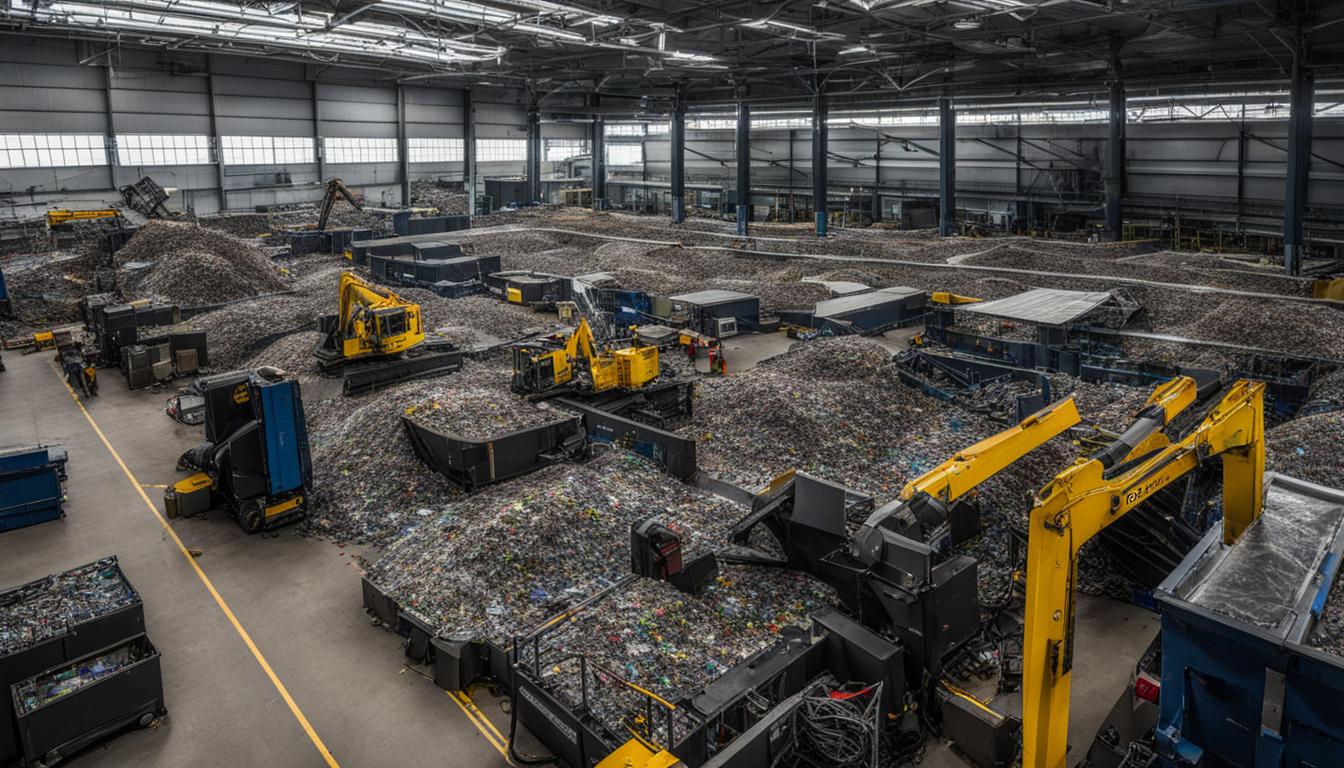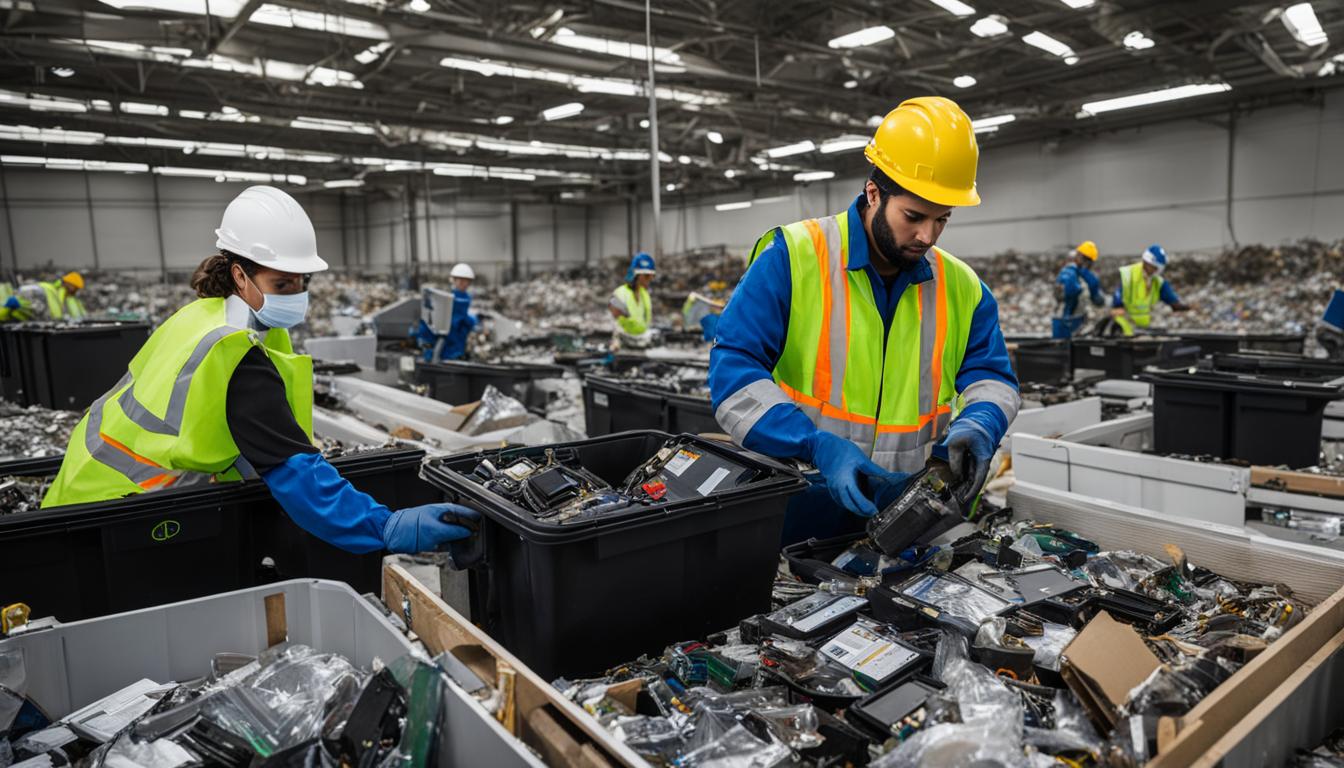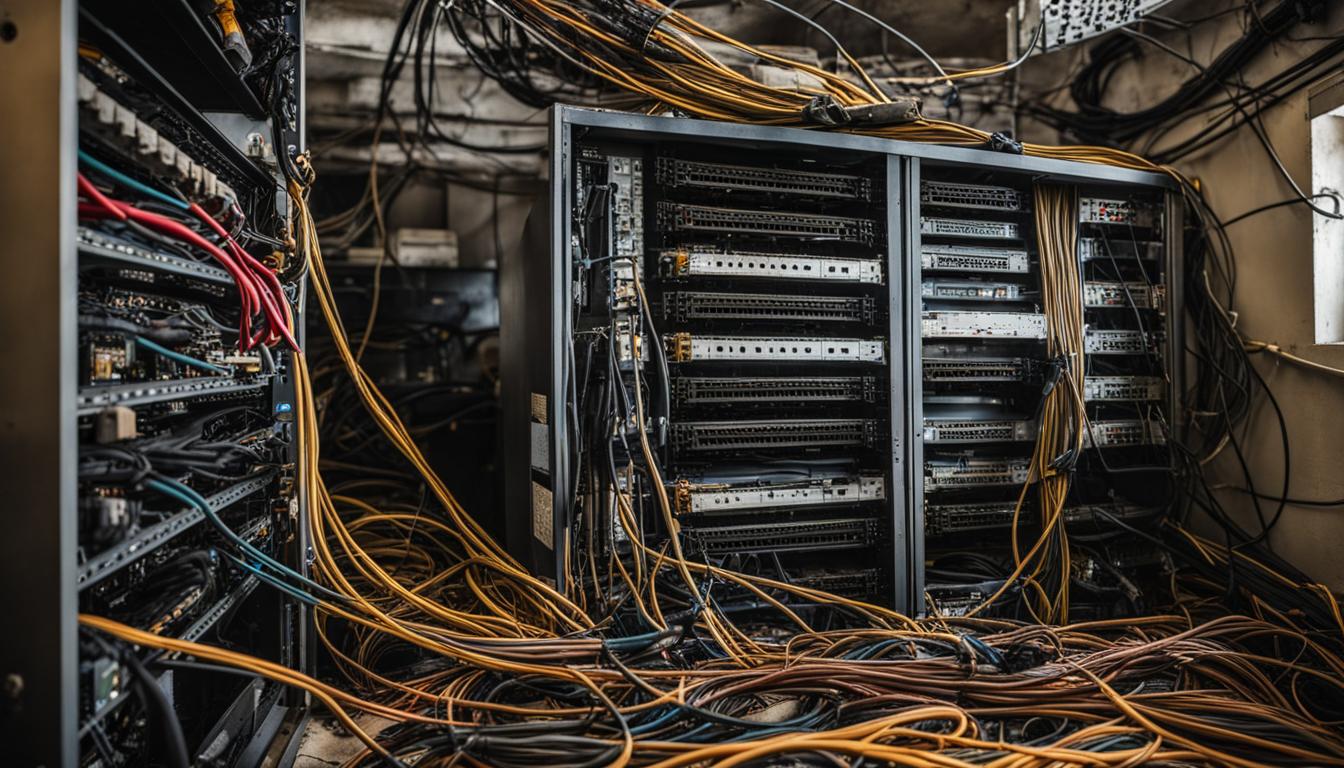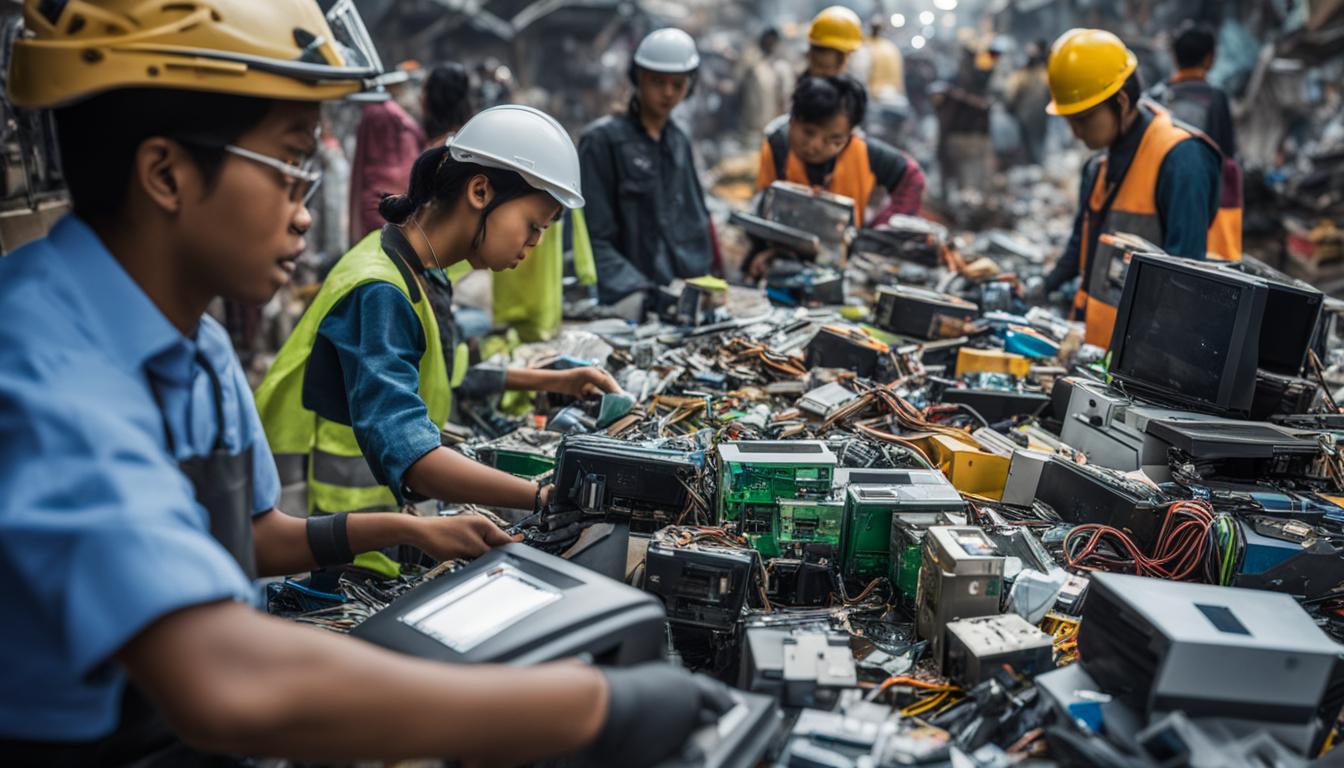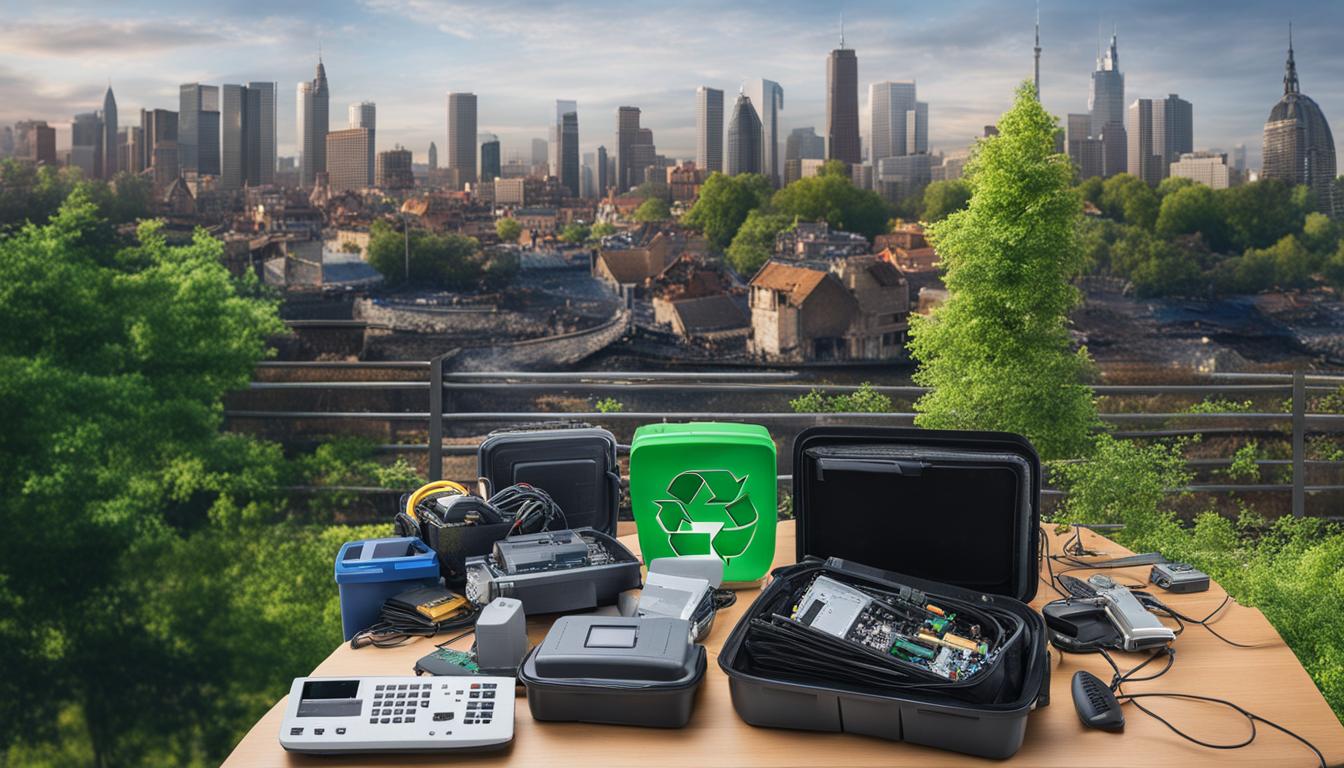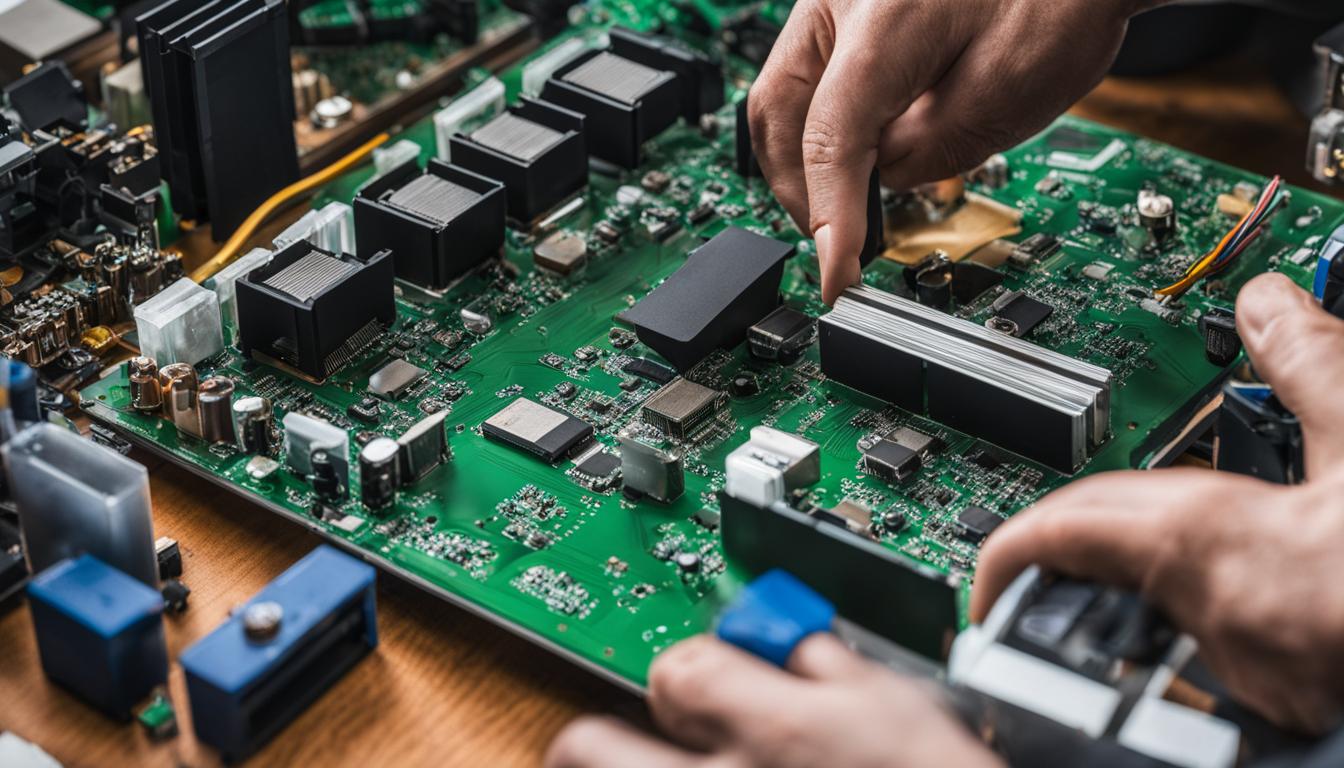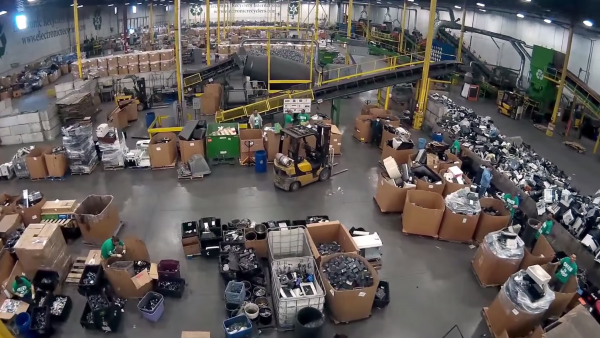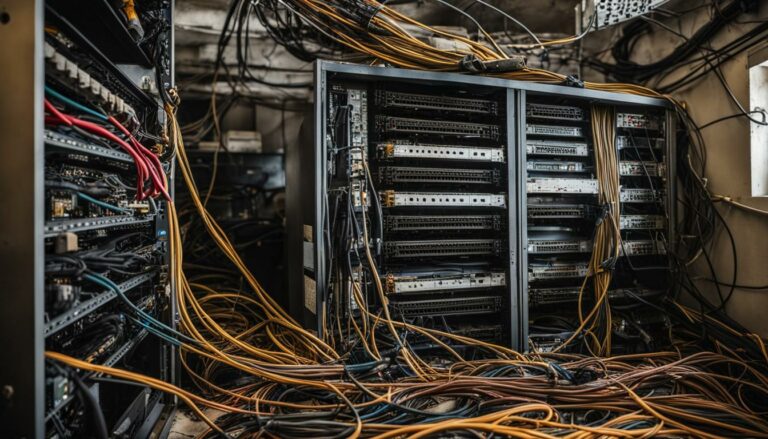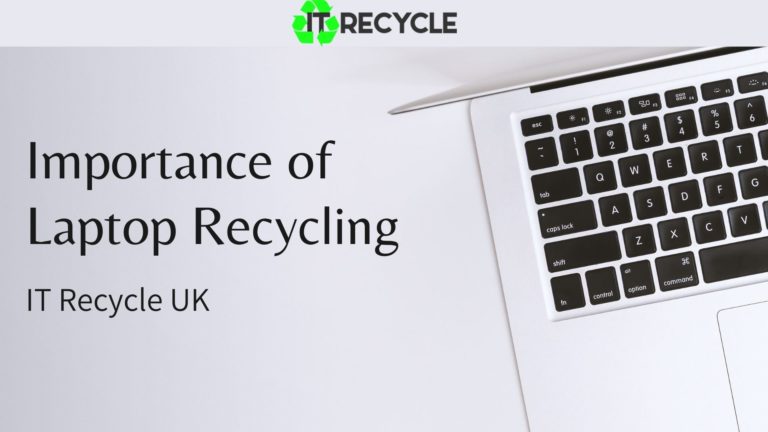The Challenges of Recycling Complex Network Equipment
Recycling electronic waste, or e-waste, is a complex process that presents numerous challenges. One of the main obstacles is the sheer volume of e-waste being produced, with an estimated 53.6 million metric tons generated globally in 2019. However, only about a fifth of this waste was actually recycled. Additionally, electronic devices are made up of various components that must be broken down and recycled individually, requiring specialized knowledge and resources. The lack of standardized e-waste recycling policies and the presence of harmful materials such as toxic heavy metals further complicate the recycling process. These factors contribute to the difficulty of recycling network equipment and other forms of electronic waste.
Key Takeaways
- Recycling electronic waste is a complex process with various challenges.
- The volume of e-waste being generated globally is significant, yet only a small portion is recycled.
- Electronic devices have multiple components that require specialized recycling methods.
- The lack of standardized recycling policies and the presence of toxic materials complicate the process.
- Proper recycling of network equipment and e-waste is crucial for environmental protection.
The Barriers to E-Waste Recycling
One major barrier to e-waste recycling is the lack of standardized recycling policies. While some companies offer recycling options, there is no universal agreement on the safest and most effective methods for recycling different types of e-waste.
Additionally, the presence of unethical practices among recycling companies, as highlighted by the Basel Action Network’s investigation in 2016, further hinders the recycling process.
The complex nature of electronic devices, with their toxic components and various materials, makes recycling e-waste a costly and time-consuming endeavor. Furthermore, the planned obsolescence of electronic devices, where manufacturers regularly release new models, contributes to the increasing volume of e-waste and challenges recycling efforts.
Table: Recycling Policies Comparison
| Country | Recycling Policies |
|---|---|
| United Kingdom | Government-led recycling programs |
| United States | Varied recycling regulations by state |
| Germany | Strict recycling laws and regulations |
“The lack of standardized recycling policies and unethical practices among recycling companies create significant barriers in the e-waste recycling industry.” – Basel Action Network
The Impact of Unethical Practices
Unethical practices within the e-waste recycling industry undermine the efforts to responsibly recycle electronic devices. The Basel Action Network’s investigation revealed instances of e-waste being exported to developing countries, where it was improperly disposed of, causing severe environmental and health issues.
These unethical practices not only harm the environment but also exploit vulnerable communities. It is essential to address and eliminate such practices to ensure the proper recycling and disposal of e-waste.
- E-waste exported to developing countries for improper disposal
- Health risks to workers involved in illegal e-waste operations
- Environmental contamination due to improper handling of toxic components
Overall, the lack of standardized recycling policies, unethical practices, the presence of toxic components, and planned obsolescence are significant barriers to e-waste recycling. To overcome these challenges, a global effort is required to establish comprehensive and consistent recycling policies, promote ethical practices, and raise awareness about the importance of responsible e-waste disposal.
The Environmental and Health Impacts of Improper E-Waste Recycling
Improper e-waste recycling has significant environmental and health consequences that cannot be overlooked. The toxic chemicals present in electronic devices, such as lead, mercury, cadmium, and brominated flame retardants, pose serious risks to human health and the environment. Handling these materials improperly during the recycling process can lead to severe health issues, including respiratory diseases, lead poisoning, and an increased risk of cancer.
One particular area where the impacts of improper e-waste recycling are evident is in Guiyu, China. This region has become notorious for its large-scale e-waste recycling operations, which have resulted in high levels of environmental contamination. The leaching of toxic chemicals from improperly disposed e-waste has contaminated soil, air, and waterways, jeopardizing both local ecosystems and the health of nearby communities.
“The improper handling of e-waste has been associated with a range of health issues, including respiratory diseases, lead poisoning, and increased cancer risk.”
To mitigate these risks, it is crucial to enforce proper e-waste recycling practices globally. This includes implementing standardized recycling policies that ensure the safe handling and disposal of electronic devices. It is also essential to raise awareness among individuals and businesses about the importance of responsible recycling and the potential health and environmental risks associated with improper disposal.
| Environmental Impacts | Health Impacts |
|---|---|
| Soil contamination | Respiratory diseases |
| Air pollution | Lead poisoning |
| Water pollution | Increased cancer risk |
By promoting responsible e-waste recycling practices and supporting initiatives that prioritize proper disposal methods, we can minimize the environmental and health impacts of improper e-waste recycling. It is crucial for individuals, businesses, and governments to work together to create a sustainable and eco-friendly approach to managing electronic waste.
The Complexities of E-Waste Recycling
Recycling electronic waste, particularly complex network equipment, is a challenging task that involves various complexities. One significant aspect to consider is the impact of production on the environment. The manufacturing process of electronic devices requires substantial amounts of water, chemicals, and fossil fuels, resulting in a high environmental footprint. This production impact further emphasizes the need for effective and responsible recycling practices to mitigate the ecological consequences.
Another complexity in e-waste recycling lies in product design. Many electronic devices are not designed with recyclability in mind. They often contain toxic materials, adhesives, and fasteners that make disassembly and recycling more difficult. This design flaw poses challenges for recyclers who must navigate through intricate components to properly dismantle and recycle electronic devices. The lack of standardized recycling policies also hampers the process, as there is no universal agreement on the most effective methods for recycling different types of e-waste.

In summary, the complexities of e-waste recycling are multifaceted. From the production impact to the challenges posed by product design and the absence of standardized recycling policies, the process requires specialized knowledge and resources. As the volume of electronic waste continues to increase, it is crucial to address these complexities and promote responsible recycling practices to minimize the environmental impact and maximize the potential for resource recovery.
The Importance of Responsible E-Waste Recycling
Responsible recycling of e-waste plays a crucial role in protecting the environment and ensuring the safe disposal of hazardous materials. Improper handling of electronic waste can have serious consequences for both human health and ecological well-being. By choosing to work with formal e-waste recyclers like TechReset, individuals and businesses can contribute to sustainable practices and landfill diversion.
When it comes to environmental protection, responsible recycling is key. Landfills are not equipped to handle the toxic chemicals found in electronic devices, and improper disposal can lead to contamination of soil, air, and water. By diverting e-waste from landfills and opting for proper recycling, we can reduce the impact of electronic waste on our ecosystems.
TechReset is committed to responsible e-waste recycling. With their Zero Landfill Initiative Policy, they ensure that all e-waste processed through their facility is recycled in an environmentally friendly manner. By partnering with TechReset, individuals and businesses can have peace of mind knowing that their e-waste is being handled responsibly and in accordance with regulatory guidelines.
Benefits of Responsible E-Waste Recycling:
- Protection of the environment from toxic materials
- Prevention of air, water, and soil contamination
- Conservation of natural resources through recycling
- Reduction of greenhouse gas emissions associated with manufacturing new electronic devices
- Promotion of a circular economy and sustainable practices
In conclusion, responsible e-waste recycling is crucial for environmental protection and sustainable technology practices. By choosing to recycle e-waste through formal and reputable recyclers like TechReset, we can ensure that electronic waste is managed responsibly, landfill diversion is achieved, and the ecological impact of electronic waste is minimized.
Conclusion
Recycling complex network equipment poses significant challenges due to the intricate nature of electronic devices. With the volume of e-waste generated and the presence of toxic materials, recycling becomes difficult and expensive. However, responsible e-waste recycling is essential for environmental protection and human health.
By partnering with formal recyclers and embracing sustainable technology practices, we can actively contribute to a greener and more sustainable future. It is crucial that we prioritize network equipment recycling in order to minimize the ecological impact of electronic waste.
Together, let us make a difference by supporting formal e-waste recyclers and adopting sustainable technology practices. By doing so, we can ensure the proper disposal of network equipment and contribute to a healthier and more environmentally conscious society.
FAQ
What are the challenges of recycling complex network equipment?
The challenges of recycling complex network equipment include the sheer volume of e-waste being produced, the lack of standardized recycling policies, and the presence of toxic materials.
What are the barriers to e-waste recycling?
The barriers to e-waste recycling include the lack of standardized recycling policies, unethical practices among recycling companies, the complex nature of electronic devices, and the planned obsolescence of electronic devices.
What are the environmental and health impacts of improper e-waste recycling?
Improper e-waste recycling can lead to environmental contamination and pose serious health risks. Electronic devices contain toxic materials that can damage the nervous and reproductive systems, and improper handling of these materials can lead to respiratory diseases, lead poisoning, and increased cancer risk.
What are the complexities of e-waste recycling?
E-waste recycling is complex because electronic devices are made up of various components that must be broken down and recycled individually. The design of most electronics does not account for recyclability, and the presence of toxic materials, adhesives, and fasteners adds to the challenges faced by recyclers.
Why is responsible e-waste recycling important?
Responsible e-waste recycling is important for environmental protection and human health. Improper disposal of e-waste can lead to environmental contamination, and formal recycling processes ensure the safe and environmentally friendly disposal of electronic waste.
What is the conclusion regarding network equipment recycling?
By working with formal recyclers and supporting sustainable technology practices, we can promote a greener and more sustainable future.

